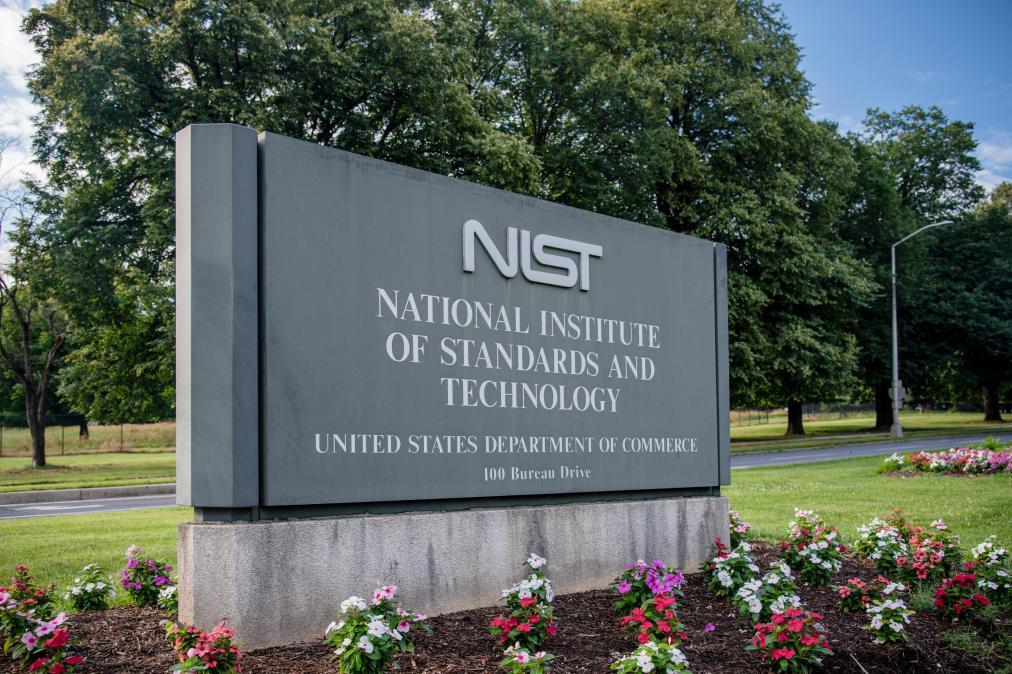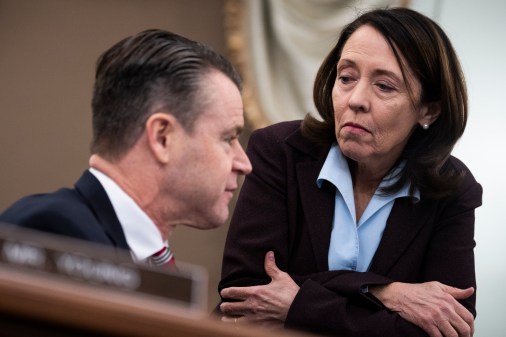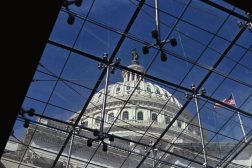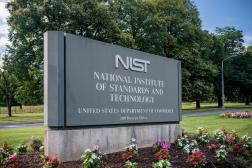Quantum industry leaders voice support for NIST, other science agencies following Trump’s requested budget cuts

Representatives from the quantum industry attested that the National Institute of Standards and Technology is an important component of the quantum research community during a Wednesday House hearing, as that agency and other key scientific components face proposed decreases in funding.
NIST, which sits within the Department of Commerce, has long had issues with underfunding and could experience another budget cut if Congress agrees to the funding level in President Donald Trump’s proposed “skinny” budget. But at a hearing before the House Committee on Science, Space, and Technology on quantum, panelists underscored the agency’s role in quantum research.
Celia Merzbacher, executive director of the Quantum Economic Development Consortium, said that a survey of her consortium’s quantum industry members found a high proportion of CEOs, founders, chief technology officers, chief scientists and others had all come through the agency.
“So if you cut funding to NIST, you’re cutting access to those key type of experts,” Merzbacher said.
She also added that NIST works on standards for post quantum cryptography, or PQC, which is the effort to develop and implement new cryptographic algorithms to safeguard digital encryption against the future code-cracking capabilities of quantum computers.
“They’re the lead on that,” Merzbacher said. “So I can’t say enough about how important NIST is.”
Merzbacher’s comments came in response to a question from Rep. April McClain Delaney, D-Md., whose district encompasses NIST’s main campus in Gaithersburg, about the importance of the agency in the quantum environment and what private industry can do to step in if cuts are made.
In response to that same inquiry, Charina Chou, chief operating officer and director of Google Quantum AI, similarly told lawmakers that NIST is “incredibly important.”
Chou said that the qubits — the unit of measurement for quantum computing — used at Google “come from foundational work at NIST in the 90s.” She also cited NIST’s work on post-quantum cryptography standards and said the agency is engaging globally on quantum standards as the field progresses.
“We in the private sector are going to absolutely do our part. We want to make sure the U.S. succeeds,” Chou said. “That, being said, government expertise, in some ways, is irreplaceable.”
Pete Shadbolt, chief scientific officer and co-founder of the quantum computing startup PsiQuantum, pointed to a quantum wafer he brought to the hearing that’s manufactured by his company.
“There are thousands of detectors on this wafer built shoulder to shoulder with chips that go into laptops and cell phones,” Shadbolt said. “And much of that technology was developed at NIST.”
Charles Tahan, a partner at Microsoft Quantum and former director of the National Quantum Coordination Office at the White House Office of Science and Technology Policy, called NIST “a jewel of the federal quantum ecosystem, period.”
Public-private partnership
The support for NIST encapsulated a common theme during the hearing from both panelists and lawmakers: the importance of public-private partnerships in quantum innovation. That included examples of partnerships through universities and the Department of Energy’s national labs, and a need for congressional support.
In his opening remarks, Tahan said “we must prioritize our research-funding institutions, particularly the DOE, [the National Science Foundation], NIST and NASA, along with the DOD and the intelligence community. These agencies create programs that bridge the valley of death from the lab to the markets.”
The hearing was primarily focused on reauthorization of the National Quantum Initiative Act, which was introduced in both chambers last year but failed to advance. Despite not becoming law, there still appears to be bipartisan interest in seeing the legislation move forward.
In his opening remarks, committee Chair Brian Babin, R-Texas, said he looked forward to working with the Trump administration on a reauthorization and praised the original NQIA.
“The NQIA elevated quantum information science to a national priority, attracting top talent and driving investments in the field,” Babin said. He also said that the quantum centers that the legislation established “have become innovation hubs fostering collaboration between academia, industry and government,” and that universities, national labs, and the private sector have made progress in the field.
Ranking member Zoe Lofgren, D-Calif., said in opening remarks that she hoped lawmakers could continue their bipartisan efforts on quantum leadership, but criticized the Trump administration’s budget request and cuts to hundreds of grants at NSF that it said didn’t align with administration priorities.
“Hopefully we can continue to find bipartisanship in our support for U.S. quantum leadership, but such efforts must strengthen our overall science enterprise, not embark down a path of trying to pick winners or losers, or we will surely lose everything,” Lofgren said.
Quantum technologies are seen as an innovation that could improve computing capabilities and lead to scientific breakthroughs, but those on both sides of the aisle worry that global adversaries like China could outpace the U.S. in fully realizing the technology first. There are also fears that quantum computing could crack current methods of encryption for information stored digitally, threatening to expose private and sensitive information.
Proposed cuts
While the White House said it would “amply” fund quantum and artificial intelligence research in announcing the budget request, Democrats on the committee voiced concern that the proposed cuts to science and technology would still impact progress in the emerging quantum space.
In addition to McClain Delaney, Rep. George Whitesides, D-Calif., called out similar proposed cuts at NASA, NSF, the National Institutes of Health, and the Centers for Disease Control and Prevention. Whitesides, a former NASA official, said the budget request is “simply put, a disaster, a series of devastating cuts that would nearly guarantee that we cede leadership to China across a wide range of technical and scientific fields.”
Specifically for NIST, the White House budget request would see funding for the agency slashed by $325 million, citing the agency’s funding of awards that support “the development of curricula that advance a radical climate agenda.”
The amount appears to be a significant portion of its overall budget. In the full-year continuing resolution that served as the appropriations for fiscal year 2025, NIST received $857 million for its science and research account, and nearly $88 million for its building expenses account. It also comes as agencies are reducing staff and reorganizing in line with Trump’s directives.
Babin, in his opening statement, also addressed the budget request, saying he would “review the proposal very thoroughly,” but noted he “was pleased that the administration proposed maintaining funding for quantum R&D at current levels, including at the NSF and the DOE.”
The “skinny” budget doesn’t include a lot of detail about what the administration would specifically like to see cut at each agency.
In addition to its existing work on quantum, there’s also bipartisan interest in seeing a “sandbox” for the technology established at NIST. A bipartisan amendment to the NQIA from Reps. Jay Obernolte, R-Calif., Haley Stevens, D-Mich., Randy Weber, R-Texas, and Richard Hudson, R-N.C., calls for the creation of such an environment to develop and test uses.
Obernolte and Stevens — and Senate counterparts — have also reintroduced a bill to establish a foundation at NIST that would help the agency foster public-private partnerships broadly and supplement the agency’s funding.
Stevens noted the introduction of the sandbox bill at the hearing, but focused her remarks on the termination of NSF grants, calling it an “alarming development.” Stevens pointed to a bipartisan bill she authored to prioritize investments in STEM education, with a focus on students who are female, live in rural areas, are disadvantaged, or are minorities. That bill was signed into law by Trump in 2019.
“This passed and it was signed, and then on Saturday morning, I wake up to the news that all the STEM grants at the National Science Foundation have been stopped,” Stevens said. “Now that, to me, seems like an Article I moment.”
Stevens said her bill is being “ignored” and “overwritten” by the current policies.
“We can’t be outside the bounds of our Constitution and expect to succeed as an open, capitalist, free-market democracy,” Stevens said.






